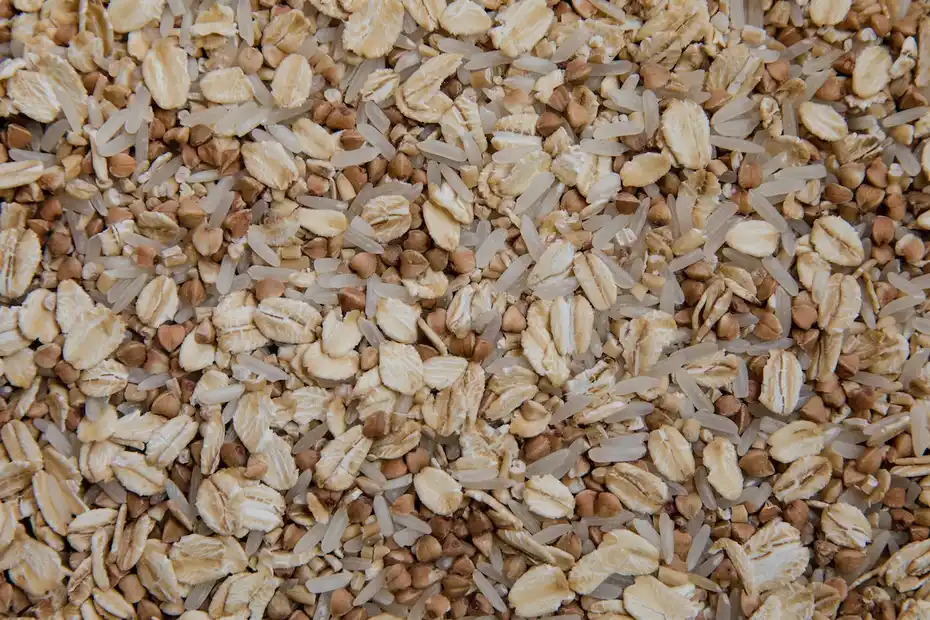Introduction
Rice and grains are a healthy, delicious way to nourish your body. But conventional rice and grains don’t always work in the best interest of your health. Switching to organic rice and grains can reduce your exposure to harmful chemicals and GMOs. Here are some of the reasons why it’s worth making this switch:
To Protect Yourself From GMOs
Genetic modification is the process of inserting genes from another species into a crop to make it more resilient to pests, drought, and other environmental factors. Though genetically modified organisms (GMOs) have been around since the 1980s, they are still not required to be labeled in the United States.
The primary concern with GMOs is that their genetic material has been spliced with something foreign like bacteria or viruses and this can cause health problems for people who consume them. For example, some scientists believe that Monsanto’s Roundup Ready GMO crops may cause cancer as a result of pesticide exposure (although this remains controversial).
Help in digestion
Digestion is a complex process. It’s made up of a number of different steps, including the breakdown of food into smaller molecules and its absorption into your bloodstream. Your body relies on an array of enzymes to break down these molecules for transport, and these enzymes are produced by your pancreas, liver and gallbladder.
Many people rely on over-the-counter digestive aids to help them with this process, but there are also many natural remedies that can help improve your digestion as well. For example, organic rice contains fiber that helps to keep you regular and healthy by preventing constipation and diarrhea. Organic rice is also high in iron and protein, which helps to keep your blood sugar levels stable after eating a meal.
To Avoid Arsenic
Arsenic is a naturally occurring substance that’s found in many foods, including rice and grains. It’s also used in pesticides and other products. Arsenic is toxic to humans, but it can be hard to avoid arsenic exposure because it’s found so widely in the environment. The U.S. EPA says that “people are exposed to all types of arsenic through food, drinking water, soil, and dust”. The agency also states that “the greatest source of human exposure is contaminated drinking water”.
Too much arsenic can lead to health problems such as kidney disease; bladder cancer; skin cancer; diabetes; cardiovascular disease; neurological damage (including impaired memory); increased risk of Alzheimer’s disease or Parkinson’s disease later in life.
Reduce Obesity
Organic rice is a healthy food for people who want to reduce obesity. It has all the nutrients that your body needs and it can also help you lose weight. Organic rice contains less fat and calories than regular rice, so it helps you lose weight by reducing your calorie intake. Organic rice is also rich in fiber, which helps to fill you up so that you don’t get hungry as quickly.
Organic rice is grown without pesticides or chemicals, which means that it’s better for your health and the environment. Pesticides are linked to cancer and other diseases, so choosing organic rice over conventionally grown rice will help reduce your risk of developing these illnesses later in life.
Organic rice also tastes better than conventionally grown rice because it has more flavor due to its natural sugars instead of being processed with preservatives like ordinary varieties are often treated with before being sold at supermarkets across America today! This means that choosing organic over conventional varieties will allow you enjoy more flavorful meals without worrying about getting sick from eating foods that contain toxins produced by pesticides used on non-organic crops during production processes like farming operations done on farms near communities where families live.
Switching to organic rice and grains can improve your health.
Organic rice and grains are grown without pesticides, genetically modified organisms (GMOs), synthetic fertilizers, or synthetic chemicals. By eating organic you’re avoiding the following health risks:
- Increased exposure to toxins like pesticides. Pesticides include chemicals such as organophosphates that can be harmful if they come into contact with the skin or are ingested orally in high doses. Studies have linked pesticide exposure with several disorders including Parkinson’s disease, Alzheimer’s disease, various types of cancer (breast cancer in particular), autism spectrum disorders, ADHD/ADD/ADHD-combined type disorder, developmental delay/intellectual disability (DD/ID) in children ages 0–4 years old who live on farms where there is heavy use of pesticides for crop production; these DD/IDs may be associated with increased risk for autism spectrum disorders later in life; other studies link DD/ID specifically with lower IQ scores at age 7 years old or below; DDs affect one out every 68 children born today according to the CDC). These risks are particularly high when workers handle large amounts of pesticides directly while applying them during cultivation processes; however, consumers also face potential harm through consumption since many organic foods contain residues from their non-organic counterparts which were sprayed heavily before harvesting.
Conclusion
We’ve touched on a few of the health benefits of switching to organic rice and grains. But it’s important to remember that these are just a few examples! There are many more reasons why you should switch to organic, from protecting yourself from pesticides and GMOs to reducing your risk for diabetes. The choice is yours: if you want to feel better now and in the future, then there’s no time like now (and today).
